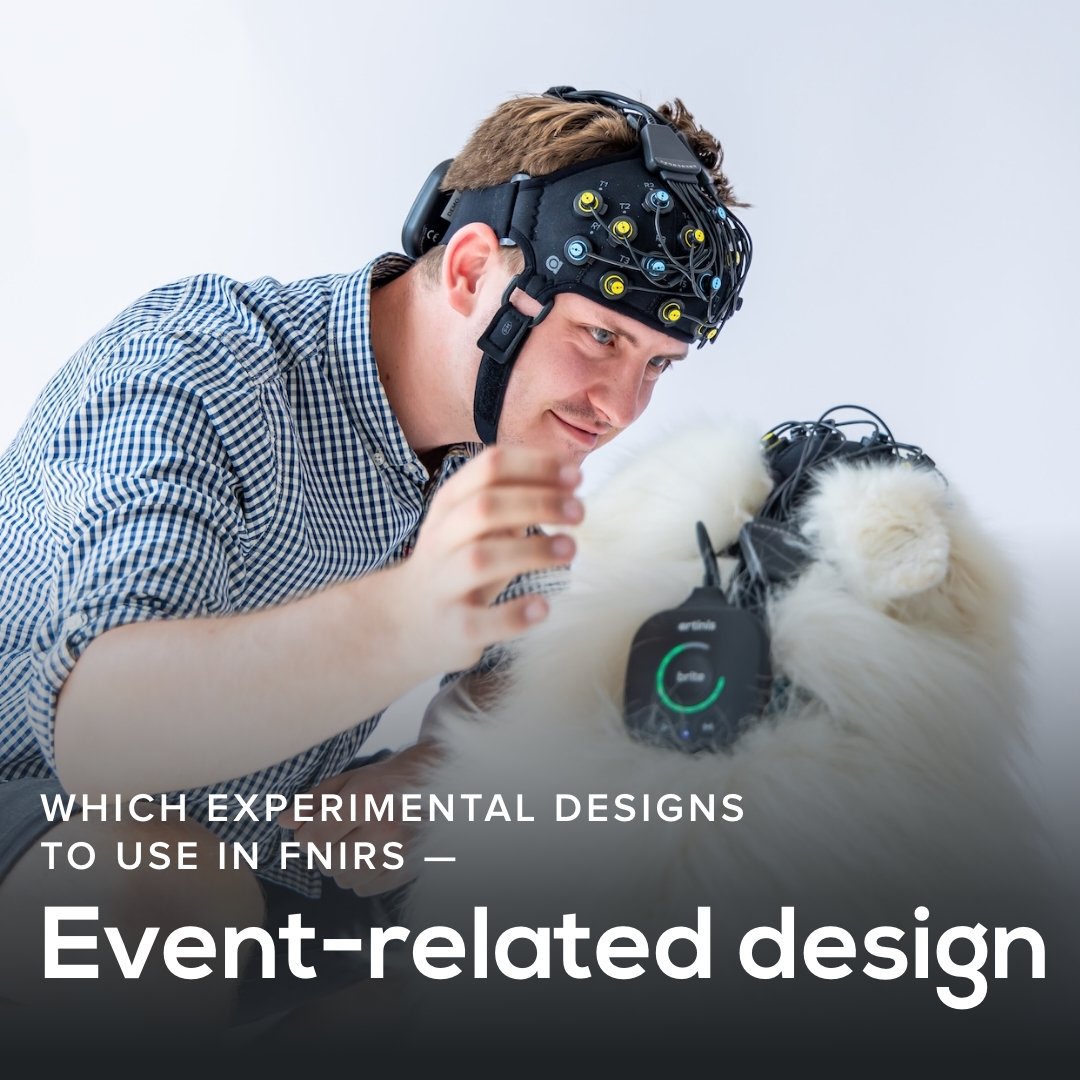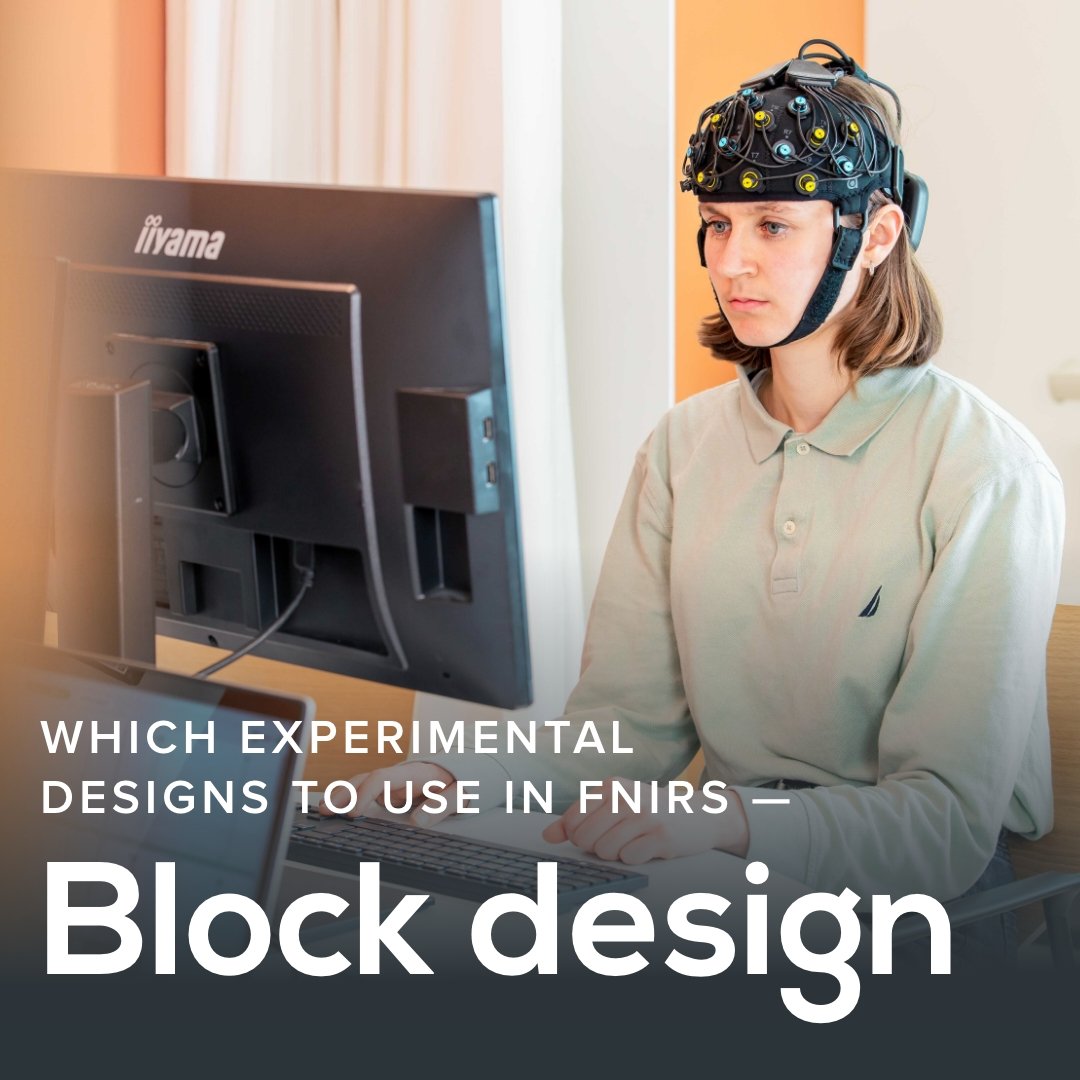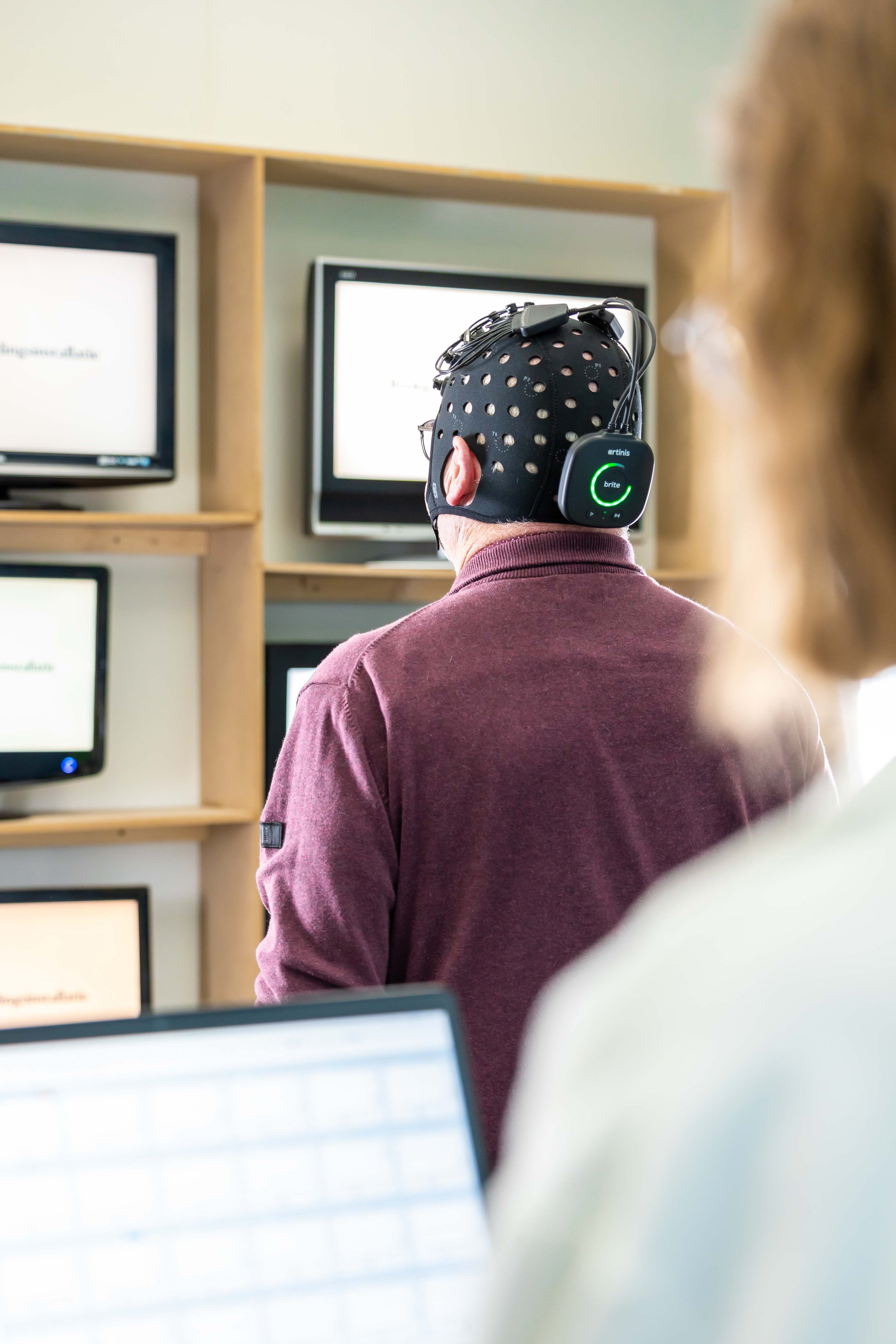In Artinis NIRS blog, you will find the latest trends in (f)NIRS, NIRS studies and applications, tutor from the leaders of near infrared spectroscopy, not to mention detailed insights and tips and tricks for your research!
Search blog post topic

Which experimental designs to use in fNIRS — Resting-state design
Resting-state design using fNIRS can give information on neural networks and functional brain architecture, and is often used in developmental and clinical studies. In this blogpost, we discuss the characteristics, advantages, and considerations of resting-state experiments and give recommendations for successful fNIRS resting-state studies.

Which experimental designs to use in fNIRS — Event-related design
Event-related study design is frequently used in fNIRS experiments, especially in naturalistic settings or multimodality setups. In this blogpost, we explain what event-related study design is, and dive into its advantages and considerations, as well as recommendations on how to best set up an event-related fNIRS study.

Which experimental designs to use in fNIRS — Block design
Block design is one of the most frequently used experimental designs when performing fNIRS experiments, as it offers various advantages. In this blogpost, we explain characteristics, advantages and considerations of block design experiments, and give recommendations on how to correctly use it in your fNIRS research.

Which experimental designs to use in fNIRS — Introduction
This is the introduction post of our blogpost series on experimental designs in fNIRS. In this blogpost, we explain what fNIRS measures, which general considerations have to be considered, and which frequent experimental setups we have for fNIRS.
